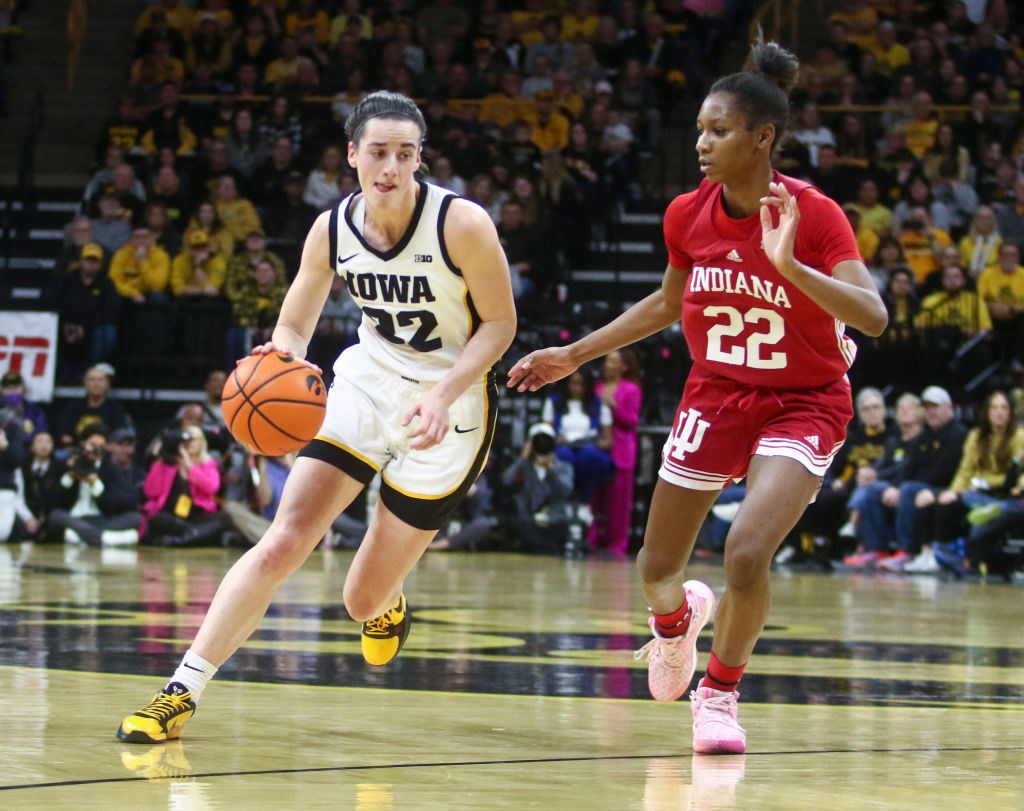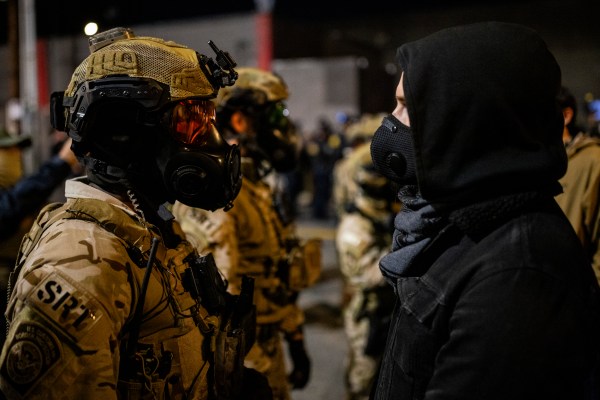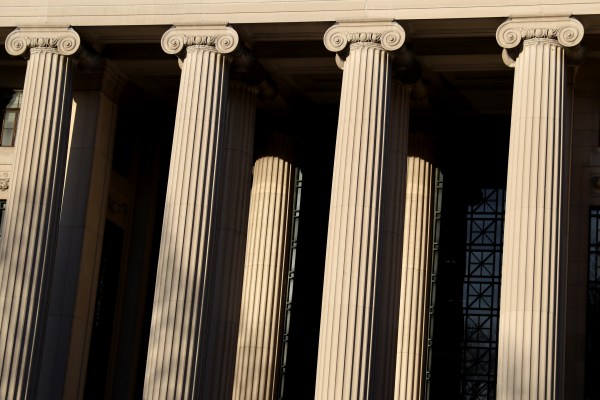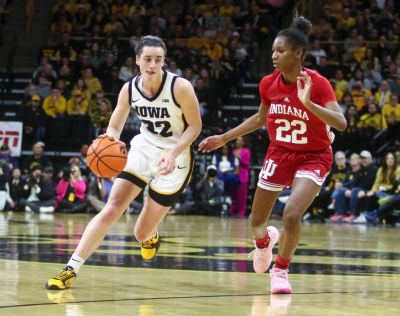Happy Wednesday! We had the great misfortune yesterday of learning that, during renovations of a museum in Guanajuato, Mexico, the arm of one of the collection’s 19th-century mummies came off—so now you get to know about it, too. Have a great day!
Quick Hits: Today’s Top Stories
- French President Emmanuel Macron said on Tuesday that Ukrainian forces could use French-provided weapons, including long-range missiles, to attack targets inside Russian territory, after NATO Secretary-General Jens Stoltenberg last week urged Western countries to lift restrictions on the use of their weapons. “Ukrainian soil is being attacked from bases in Russia,” he said during a press conference with German Chancellor Olaf Scholz. “So how do we explain to the Ukrainians that we’re going to have to protect these towns … if we tell them you are not allowed to hit the point from which the missiles are fired?” Russian President Vladimir Putin responded Tuesday, threatening “serious consequences” if Western nations allow Kyiv to attack Russian territory.
- The Georgian parliament on Tuesday finalized the passage of the Russian-inspired “foreign agent bill” that will require organizations receiving more than 20 percent of their funding from abroad to register as a foreign agent. The bill sparked protests and public blowback a few weeks ago that led to the arrests and assaults of dozens of Georgian protesters, as law enforcement turned to tear gas and stun grenades to disperse the crowds. President Salome Zourabichvili vetoed the bill earlier this month, but Georgian Dream, the ruling party, easily overrode her. Ahead of the vote, the U.S. last week imposed travel restrictions on “individuals who are responsible for or complicit in undermining democracy in Georgia, as well as their family members,” U.S. Secretary of State Antony Blinken said Friday.
- The Haitian transitional council on Tuesday unanimously appointed Garry Conille as the country’s prime minister, to replace the interim premier, Michel Patrick Boisvert. Conille, who served as prime minister briefly after the 2010 earthquake in the Caribbean country, has spent most of his career as an international aid official. His appointment comes amid escalating gang violence across Haiti, where two American missionaries were killed last week.
- Israeli tanks rolled through the center of Rafah, the southernmost city in Gaza, on Tuesday, as Israel seeks to eliminate remaining Hamas fighters in the area. The armored vehicles were part of a military incursion into the city designed to be “targeted” and “precise,” said Israel Defense Forces (IDF) Rear Adm. Daniel Hagari. “There are still Hamas battalions in Rafah,” he said. “A couple of days ago launchers from Rafah fired [missiles] in Tel Aviv.” Hagari added that IDF forces destroyed Hamas tunnels that run underground from Rafah to Egypt.
- Taiwan’s cabinet on Wednesday rejected legislation the opposition party passed Tuesday that would have limited the authority of newly elected President Lai Ching-te, a member of the Democratic Progressive Party. The changes—which have not yet become law—would grant Taiwanese lawmakers greater power over the budget, including defense spending, and give lawmakers the authority to require individuals, companies, or the military to disclose information the parliament deems relevant and criminalize contempt of parliament. Opponents argue the changes are favorable to China, and tens of thousands of people have protested the reforms in the capital of Taipei. The parliament, led by the Kuomintang (KMT) party, is likely to veto the move by Lai’s cabinet to have the legislature review the measure.
- The prosecution and defense teams in former President Donald Trump’s New York criminal trial presented their closing arguments in the case on Tuesday at the end of a five-week trial. Todd Blanche, the former president’s lead defense attorney, fiercely denied that Trump intentionally falsified business expense records relating to hush money payments made to porn star Stormy Daniels. Blanche also attempted once more to cast doubt on testimony from one of the prosecution’s key witnesses, former Trump lawyer Michael Cohen. On the other side, Manhattan prosecutors sought to tie the alleged hush money payments to Trump’s 2016 presidential campaign and an effort to “hoodwink the American voter.” Those payments “could very well be what got President Trump elected,” said one prosecutor. The jury will deliberate on the 34 counts, with each requiring a unanimous verdict from the jury either to convict or acquit on any one count.
- The Libertarian Party on Sunday nominated Chase Oliver—a 2022 Senate candidate from Georgia—to serve as its presidential nominee after seven rounds of voting at the party’s national convention. Although both former President Donald Trump and independent candidate Robert F. Kennedy Jr. spoke at the convention and received votes from Libertarian delegates—Kennedy as an official candidate, Trump as a write-in candidate—neither made it past the first round of voting. Oliver, an anti-war protester and former Democrat, said his strategy is to focus on the youth vote. “We’ve identified young people, and in particular those who are upset with the war going on in Gaza, upset with the immigration crisis, and upset with cost of living,” he told Politico.
- Bill Walton, the UCLA Bruins legend who went on to win two NBA championships with the Portland Trail Blazers and Boston Celtics, died on Monday at the age of 71 after a battle with cancer. Walton struggled with injuries and chronic pain throughout his career, but managed to rack up a number of accolades anyway: Most Valuable Player, two-time All-Star, Sixth Man of the Year, three-time National College Player of the Year, and more. Later in life, he became known as an eccentric but lovable broadcaster.
A Brave New World for College Sports

If you spend as much time online as your Morning Dispatchers do, then you’ve surely run across tweets suggesting that “the European mind cannot comprehend” some—usually admittedly bizarre—aspects of American culture.
We tend to think that a settlement last week in several antitrust lawsuits against the National Collegiate Athletics Association (NCAA) may fall under the umbrella of “things that would confound our friends across the pond.” The deal—which still needs a judge’s approval but would resolve three outstanding cases—muddles, yet again, college athletes’ status in a multimillion-dollar business that has no corollary in the Old Country. (Their loss, frankly.) The landmark settlement looks poised to kill—perhaps once and for all—the amateurism model that has defined the last century of college athletics, but the agreement could ultimately generate more questions than it answers.
As we explained a few months ago, the state of college sports is, well, chaotic:
In June 2021, the Supreme Court handed down a unanimous 9-0 ruling in NCAA v. Alston that stated the NCAA had violated antitrust law by limiting the amount of in-kind, education-related benefits colleges and universities could provide to their athletes. While the immediate ruling was not directly related to sponsorship deals or NIL opportunities, the NCAA announced its own interim policy about a week after the ruling “suspending NCAA name, image and likeness rules for all incoming and current student-athletes in all sports.” Under the new policy, students were allowed to engage in NIL activities as prescribed by the law of the state where their school is located. Schools were tasked with helping students navigate those state laws, and students were required to report all approved NIL activities to their school.
Leaders across collegiate athletics have for months waited with bated breath for the outcome of a handful of other antitrust cases against the NCAA and the Power Five conferences—the Atlantic Coast Conference (ACC), the Big Ten, the Big 12, the Pac-12, and the Southeastern Conference (SEC). One of those cases was House v. NCAA, a suit brought by the named plaintiff, former Arizona State University swimmer Grant House, and hundreds of other college athletes who secured class status. Eventually merged with two similar cases, the lawsuit alleged that the NCAA and the Power Five conferences violated antitrust laws by restricting student athletes’ ability to profit from their name, image, and likeness (NIL) prior to the Supreme Court case and policy change and by denying them revenue from the broadcasts of their competitions.
If the case had gone to trial—originally set for early next year—the NCAA and the conferences could have been liable to the tune of at least $4 billion, and potentially much more. “Such a verdict would be financially devastating and unsustainable,” NCAA President Charlie Baker, the former Republican governor of Massachusetts, said last week.
Naturally, they settled.
The agreement reached last week between the NCAA, the Power Five, and the plaintiffs would see the governing bodies on the hook for $2.75 billion in damages over 10 years. Those funds—effectively back-pay for lost NIL revenue—would be paid out to football and men’s and women’s basketball players in the major Division 1 (D1) conferences, as well as to the thousands of other D1 athletes who joined the suit and competed between 2016 and 2020. It’s not yet clear what dollar figure each individual player might receive or exactly how that sum will be calculated.
The NCAA, the Power Five, and a handful of other conferences in D1 will be coughing up the cash—even though the other conferences were not named in the complaint and therefore were not formally part of the negotiations. “We didn’t get a say in this, and now we’re paying this tax—essentially getting our wages garnished—and we had nothing to say about it, nothing to do with it, and certainly our former student athletes aren’t benefiting from this,” Tom Wistrcill, commissioner of the Big Sky conference, said last week in a radio interview.
There’s also a forward-looking element to the settlement—meant to address the plaintiffs’ claim that they were being unfairly denied a share of the revenue generated by their performance—that’s nowhere near as tidy as the scheme to pay damages. Beginning in the 2025-2026 fiscal year and continuing for the next 10 years, the negotiated agreement would allow colleges the option to directly pay athletes—a first in the history of the NCAA—a share of the revenue generated by collegiate athletics. Individual universities could disburse as much as 22 percent of the average Power Five conference revenue as direct payments—but on an opt-in basis, so schools would also be free to choose not to enter into the revenue-sharing agreement with student athletes.
The plaintiffs’ lawyers were, of course, triumphant, framing the settlement as a victory for student athletes who may now finally get what they deserve. “This landmark settlement will bring college sports into the 21st century, with college athletes finally able to receive a fair share of the billions of dollars of revenue that they generate for their schools,” said Steve Berman, lawyer for plaintiffs. “Our clients are the bedrock of the NCAA’s multibillion-dollar business and finally can be compensated in an equitable and just manner for their extraordinary athletic talents.”
Though less exuberant—perhaps natural, seeing as they’re being asked to hand over a lot of money—Baker and the Power Five conference commissioners nevertheless hailed the settlement as a win-win. “The five autonomy conferences and the NCAA agreeing to settlement terms is an important step in the continuing reform of college sports that will provide benefits to student athletes and provide clarity in college athletics across all divisions for years to come,” they said in a joint statement.
But there may yet be several steps between where we are and perfect “clarity” about what this settlement means in practice: Paying college athletes for the first time could open up a new can of legal worms—or maybe several.
There’s the deceptively simple question of who gets paid—and how much. Schools could open themselves up to antitrust claims if they endeavored to pay every single student athlete the same amount. Instead, they may have to find a way to determine an individual athlete’s market value. So even as athletic departments are tightening their belts—maybe even by cutting sports, including high prestige but low revenue teams like swimming—and sharing the wealth, they may also face new demands or the need for new positions to keep track of players’ worth.
And it doesn’t take long before such discussions run up against Title IX, the federal law that prevents discrimination on the basis of sex in institutions that receive federal funding. Though the NCAA has suggested Title IX compliance decisions are still at an individual school’s discretion, the paradigm shift could present an opportunity for the Department of Education to issue additional guidance about how schools might handle the potentially thorny question. “The schools are going to be incentivized to pay players for sports that are particularly lucrative, like football and basketball,” said Jason Gordon, a partner at Reed Smith with experience negotiating sports sponsorship deals. “But how do they address parity and compliance with Title IX? The schools have to work that out and figure out a model that will attract the top talent while also complying with the law.”
As Gordon alluded to, the possibility of paying college athletes will likely also have distorting effects on recruitment, with pay potentially now a factor for student athletes trying to decide where to go to school and whether or not to transfer.
There’s also the question of whether directly paying athletes ultimately makes them employees of the school—with everything that might accompany that status, from taxation to federal regulations to collective bargaining. Efforts by student athletes at Northwestern University and Dartmouth College to unionize—as well as a 2021 memo from the National Labor Relations Board, a government agency that handles labor disputes—were indications such a classification was possible. But it’s not clear that it’s something most college athletes favor.
“I’ve not had a student athlete come to me and say, ‘I want to be taxed like an employee,’” SEC Commissioner Greg Sankey said Tuesday. “There are those who advocate for that reality. … Those rights advocates, they have freedom of movement, freedom to NIL, it’s a pretty good existence. And we ought to be careful to try to honor that when we think through better ways to support our student athletes in a national, competitive structure.”
Though it may seem like this settlement would create incredible instability for the college sports system going forward, proponents of the deal actually see it as a harbinger of the opposite. For the NCAA, the 10-year term on the settlement, if approved, could be a bulwark against additional lawsuits. “I think that 10-year stability period is important,” Rakesh Kilaru—partner at Wilkinson Stekloff who led the negotiations on behalf of the NCAA—said on the SportsWise podcast. “You’ll have a court or essentially a court decree saying that this system is workable, saying that it’s fair and saying that it’s not an antitrust violation. And so we think that’ll provide significant stability going forward.”
Stability, for commissioners, is also a byword for federal action. As we wrote late last year, the NCAA has long desired federal regulations to standardize laws, particularly around NIL, that can vary widely from state to state. “This is a national system that deserves national standards, not just state by state, whether it’s legislative action to determine rules or Attorney General action to determine rules,” Sankey said this week. “We need national standards. And that’s the role that Congress plays.”
GOP Sen. Ted Cruz of Texas has been at the forefront of the effort to set those national standards in Congress, and there was even the potential late last year for bipartisan compromise with Democratic Sen. Cory Booker of New Jersey—though it hasn’t materialized and likely won’t in an election year when the knives are out.
The Coalition for the Future of College Athletics (C4FCA), a group representing more than two dozen NCAA conferences—though not the NCAA itself—is still pushing for a federal legislative solution, regardless of the new paradigm created by the deal. “From the Coalition’s perspective, the settlement doesn’t change much,” a source working closely on the issue and with the C4FCA told TMD. “Congress still needs to act on federal NIL [legislation]. The settlement doesn’t really provide that stable, long-term, uniform framework that federal legislation could offer.”
Worth Your Time
- For Undark, Amy Maxmen tracked the puzzling progression of the bird flu in cattle on Texas dairy farms. “In early February, dairy farmers in the Texas Panhandle began to notice sick cattle,” she reported. “The buzz soon reached Darren Turley, executive director of the Texas Association of Dairymen: ‘They said there is something moving from herd to herd.’ Nearly 60 days passed before veterinarians identified the culprit: a highly pathogenic strain of the bird flu virus, H5N1. Had it been detected sooner, the outbreak might have been swiftly contained. Now it has spread to at least eight other states, and it will be hard to eliminate. At the moment, the bird flu hasn’t adapted to spread from person to person through the air like the seasonal flu. That’s what it would take to give liftoff to another pandemic. This lucky fact could change, however, as the virus mutates within each cow it infects. Those mutations are random, but more cows provide more chances of stumbling on ones that pose a grave risk to humans. Why did it take so long to recognize the virus on high-tech farms in the world’s richest country? Because even though H5N1 has circulated for nearly three decades, its arrival in dairy cattle was most unexpected. … ‘One thing you learn in agriculture is that Mother Nature is unpredictable and can be devastating,’ Turley said. ‘Just when you think you have figured it out, Mother Nature tells you you do not.’”
Presented Without Comment
Associated Press: Biden Campaign Sends Allies [Robert] De Niro and First Responders to Trump’s NY Trial to Put Focus On Jan. 6
“I don’t mean to scare you. No, wait, maybe I do mean to scare you,” De Niro told reporters. “If Trump returns to the White House, you can kiss these freedoms goodbye that we all take for granted.”
…
“We New Yorkers used to tolerate him when he was just another crappy real estate hustler masquerading as a big shot,” De Niro said. “I love this city. I don’t want to destroy it. Donald Trump wants to destroy not only the city but the country, and, eventually, he could destroy the world.”
Also Presented Without Comment
House Speaker Mike Johnson on Louisiana radio:
“I spend half my day as Speaker of the House. The other half is as a mental health counselor.”
Also Also Presented Without Comment
Times of Israel: Nikki Haley Writes ‘Finish Them’ On IDF Shell While Touring Lebanon Border
In the Zeitgeist
We enjoy sports because it can be a healthy outlet for our tribalistic passions—and few could evoke more passionate fervor from players and fans alike than Major League Baseball (MLB) umpire Ángel Hernández … it just wasn’t always healthy. But the worst umpire in the sport has finally made the right call: He announced his retirement.
In honor of Hernandez’s retirement, we thought we’d share his best moments in the MLB (highlight reels aren’t just reserved for the players):
Toeing the Company Line
- What’s up with the Russian space weapons? What did John see at the Libertarian convention? Is journalism doing alright? Steve was joined by Mary, John, Drucker, and special guest and NewsNation host Leland Vittert to discuss all that and more on last night’s episode of Dispatch Live (🔒). Members who missed the conversation can catch a rerun—either video or audio-only—by clicking here.
- In the newsletters: Nick explored (🔒) the Biden campaign’s potentially doomed efforts to make Trump’s behavior the center of the race.
- On the podcasts: In a GLoP Culture Podcast x The Remnant crossover, Jonah and Rob Long discuss pop culture and offer hot takes on improv.
- On the site: Jonah reminds us that the country’s economic struggles have been much worse in the past and Danielle Pletka details how the International Criminal Court set itself up for trouble by requesting indictments for Benjamin Netanyahu and others.
Let Us Know
What do you think about the prospect of paying student athletes?








Please note that we at The Dispatch hold ourselves, our work, and our commenters to a higher standard than other places on the internet. We welcome comments that foster genuine debate or discussion—including comments critical of us or our work—but responses that include ad hominem attacks on fellow Dispatch members or are intended to stoke fear and anger may be moderated.
With your membership, you only have the ability to comment on The Morning Dispatch articles. Consider upgrading to join the conversation everywhere.